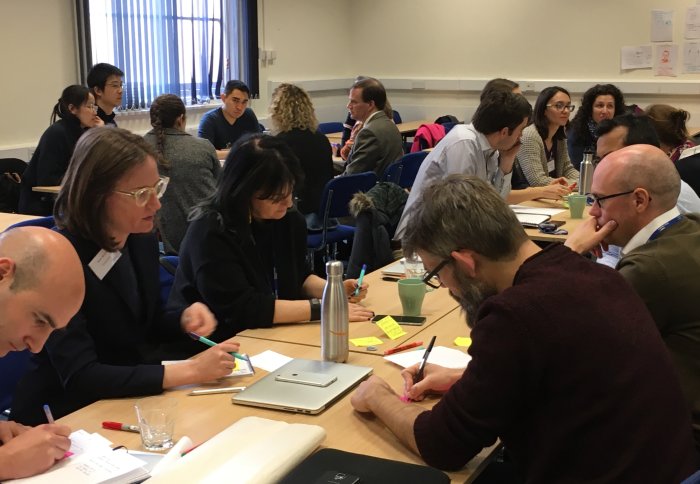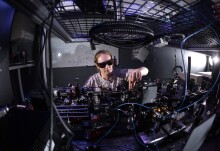
Group work to sketch new research projects

DSI, EFL and Grantham Institute teamed to support research that tackles global environmental challenges using digital technology for energy management
On the 2nd April, the Data Science Institute, the Energy Futures Lab and the Grantham Institute joined forces and organized the first half-day workshop bringing together researchers from mathematics, computing, natural sciences, earth sciences, electrical and chemical engineering and the business school to develop new research projects that address climate change and energy management using digital technologies.
Dr Tamaryn Napp presented the current consensus within the scientific community around climate change, its causes and impact. Dr Jeff Hardy spoke about the opportunities for a “decarbonised, decentralized and democratised future of the energy management” and Dr Ruth Misener presented the potential of statistical machine learning and explainable artificial intelligence in supporting energy industries to innovate and make decisions under uncertainty.
The participants then brainstormed in groups about novel research projects where digitalisation can support innovative energy management.
Following the workshop, the Institutes opened a call for a pump priming fund of a value of £30k for projects at the interface of data science, climate change and the future of energy.

The panel evaluating the applications – formed by professors Jo Haigh, Tim Green and Yike Guo, from the Grantham Institute, Energy Futures Lab and the Data Science Institute, respectively – awarded a project with the title “Drone-based imaging combined with deep learning and data assimilation to support the ongoing development of the tidal energy sector” led by Matthew Piggott with collaborators in several departments Olivier Dubrule, Graham Hughes, Marios Christou, Rossella Arcucci and Paul Kelly.
The project, which started last week, uses deep learning techniques to analyse tidal data collected by drone surveys off the coast of Scotland. Professor Piggott explains that “tidal energy is a clean renewable source. Tides possess several advantages over other renewable energy sources, including predictability. This pump-priming project will improve the quality of the current predictive models, making them more reliable and easier for implementation”.
Results will be presented by the end of the year.
Article text (excluding photos or graphics) © Imperial College London.
Photos and graphics subject to third party copyright used with permission or © Imperial College London.
Reporter

Anna Cupani
Faculty of Engineering

Contact details
Email: press.office@imperial.ac.uk
Show all stories by this author



